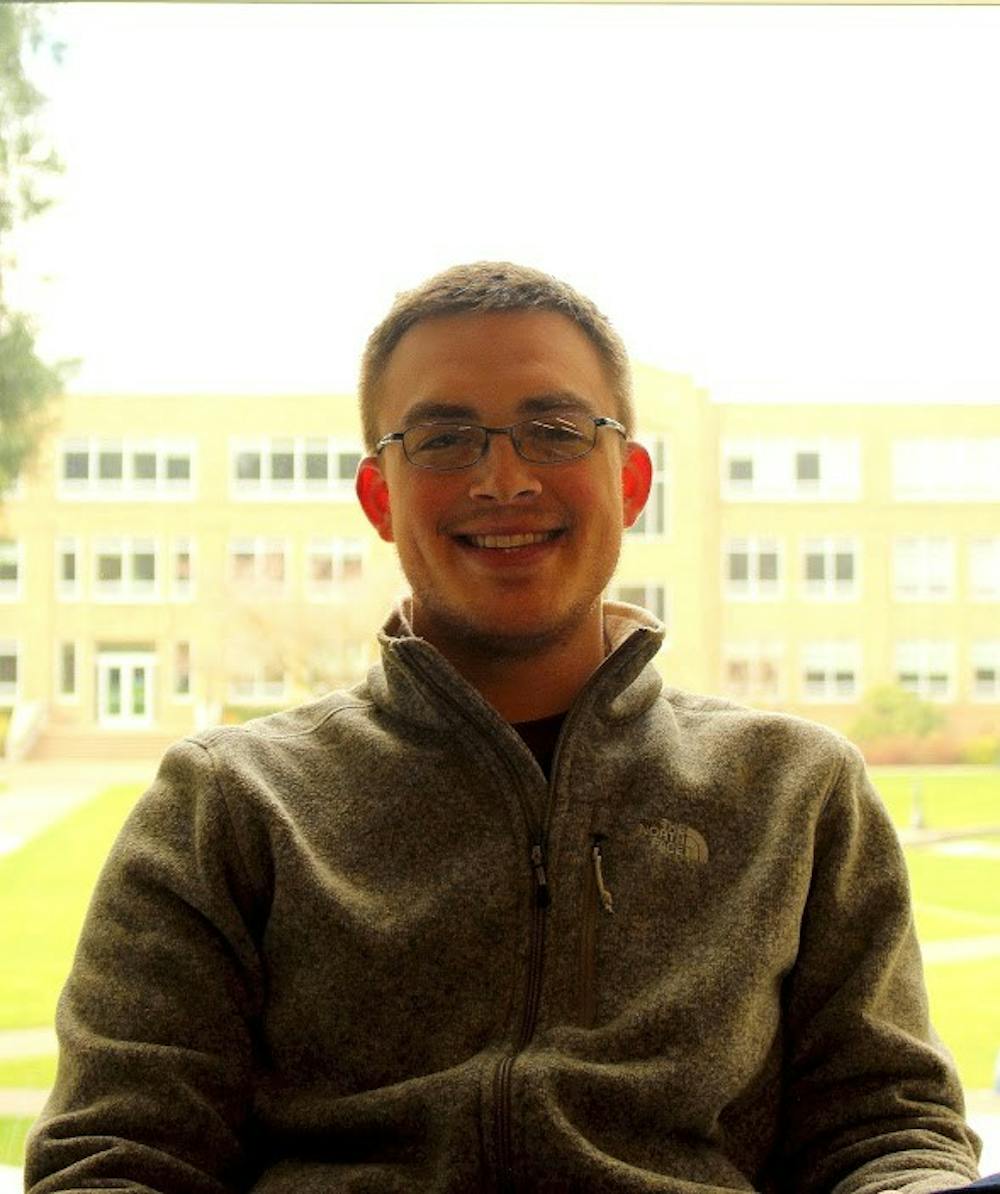Nastacia Voisin |
With the goal of transforming the study of ethics from a classroom abstraction to a lived experience, Amy Dundon-Berchtold and Jim Berchtold ‘63 pledged $4 million to UP’s Fund for Moral Formation and Applied Ethics.
The Fund sparked the creation of two programs – an upper-division theology class called the Character Project, and the Initiative in Applied Ethics, which prompts students-faculty teams to study issues within their academic fields through an ethical lens.
With the $4 million endowment fueling the Fund, both pilot programs will become permanent. The Fund will cover all operating costs, including stipends, research funds and the hiring of a program director.
President-elect Fr. Mark Poorman said the programs are part of his vision to make ethics a centerpiece of the University.
Poorman first spoke to the Berchtolds about his interest in applied ethics during the alumni fall 2011 Aegean Cruise. After that conversation, Amy Dundon-Berchtold made an initial $25,000 on-the-spot gift to establish the Fund.
“I was talking about some of the things that I do in the area of ethics, and they were very taken by the idea of the projects and wanted to know how they could help,” Poorman said. “At the end of the trip, Amy said she wanted to contribute to anything that would advance the cause. I was really grateful.”
The Dundon-Berchtold Initiative in Ethics launched in early 2012 after UP received a $500,000 seed money gift from the Berchtolds.
The Initiative awards fellowships (a stipend) to faculty selected through a competitive application process in the fall. After completing a fall ethics training colloquium, faculty fellows choose students as research partners for the projects they submitted proposals for. These students are awarded a scholarship, and are selected based on their classroom performance, compatibility, work ethic, natural curiosity and experience with research.
Political science professor Lauretta Frederking, a current faculty fellow teamed with senior Andrew Herzog, called the Initiative “transformative.”
“Bringing the ideas and concepts I play with as an academic into the realm of how it matters and how the world should be, I’m finding this intellectually liberating,” said Frederking.
According to Frederking, the Initiative bridges the disconnect between the raw dreams students bring with them to UP, and the rigid theories and concepts taught in classrooms. The hands-on, collaborative structure of the Initiative compels students to learn the relevance of their classroom lessons, while compelling faculty to learn from their students’ passion.
Frederking and Herzog are researching how political representatives handle immigration reform. The principles they’re focusing on are coherence and consistency – ethical concepts that fit into a political science framework.
Frederking said part of the beauty of the Initiative is learning how applied ethics is understood differently across disciplines.
Senior accounting major and student scholar Ryan Gillespie echoed that sentiment. He’s teamed with Professor Richard Gritta in researching causes behind breakdowns in moral lending practices.
“They encouraged us to look at issues in our disciplines through an ethical lens,” Gillespie said “That naturally caused us to reach beyond the borders. It’s really easy to hone on something that’s specialized, but by asking ‘what’s the moral implication of this?’ then you have to broaden your view.”
That cross-disciplinary lens, he said, allows them to pull everything together and look at the implications of actions, not just causes.
“This kind of thing is what UP is really good at – taking things we’re learning in the classroom and making it apply to the real world,” Gillespie said.
According to Poorman, it’s exactly that kind of grounded ethical questioning that’s so rewarding to know the Initiative is generating.
“The reason that I love applied ethics is that it’s generated by the people actually in professional fields and disciplines,” said Poorman.
Facing ethical dilemmas is also part of the Character Project – the other half of the Moral Formation and Applied Ethics programs. Currently just an interactive theology course similar to one Poorman team-taught for six years at Notre Dame, it challenges students to question what shapes moral character.
The class is an invitation-only course, taught by Poorman, Danielle Hermanny, executive assistant to the president , Fr. Gerard Olinger, vice president for student affairs and Daniel McGinty, assistant adviser for student athletes.
Senior Sierra Bray says she looks forward to the discussion-based Character Project class every week.
“It’s fascinating to get to know people on a deeper level,” Bray said. “It creates a hyper-awareness of how I’m acting and how my actions are shaping me in my everyday life. It’s probably one of the most practical classes I’ve ever taken.”
Poorman said he hopes to expand the Character Project program’s scope beyond a single course.
He hopes to involve the UP alumni network and the Portland community in joining the conversation about ethical challenges they face in their professions and plan retreats with a character formation theme.
The $4 million endowment the Berchtolds created for the Fund will allow Poorman’s plans to make UP a place where ethics flourish possible.
Frederking, Gillespie and other student scholars affirmed that the Fund and the programs it sponsors will have a lasting impact on them and UP’s environment.
“It’s transformative,” said Frederking. “And their gift will be transformative.”








